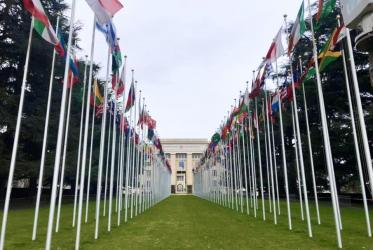The World Council of Churches (WCC) regards antisemitism as irreconcilable with the profession and practice of the Christian faith. At the WCC’s founding Assembly in 1948, antisemitism was declared a sin against God and humanity.
WCC would accordingly welcome a sufficiently precise and sufficiently widely accepted definition of antisemitism to clearly identify instances of condemnable hatred of Jews as Jews, while protecting legitimate criticism of the actions of individuals, groups or of the government of Israel from being falsely characterized as ‘antisemitic’.
Unfortunately, the IHRA definition does not greatly assist in meeting these purposes. The core definition (“a certain perception of Jews, which may be expressed as hatred toward Jews. Rhetorical and physical manifestations of antisemitism are directed toward Jewish or non-Jewish individuals and/or their property, toward Jewish community institutions and religious facilities”) is unhelpfully vague, and some of the given examples tend towards providing support to those who would portray any criticism of Israeli government policies as being motivated by antisemitism.
The example given of “Denying the Jewish people their right to self-determination, e.g., by claiming that the existence of a State of Israel is a racist endeavour” becomes especially problematic in the context of responding to the recently enacted Basic Law: "Israel, the Nation State of the Jewish People", which defines Israel exclusively as the nation state of the Jewish people, while failing to provide any constitutional guarantees for the rights of Palestinians and others living in the country.
The further example given of “Applying double standards by requiring of it a behavior not expected or demanded of any other democratic nation” is poignant, given that much of the criticism of the policies and actions of the Israeli government vis-à-vis Palestinians is founded precisely on an expectation that indeed Israel, together with all other states, should be held accountable to the same obligations under international humanitarian and human rights law.
The risk of a vague definition of antisemitism, even if widely accepted, is that it may be misused to pre-empt proper attention to violations of international humanitarian and human rights law.
Peter Prove
Director of the Commission of the Churches on International Affairs
World Council of Churches





